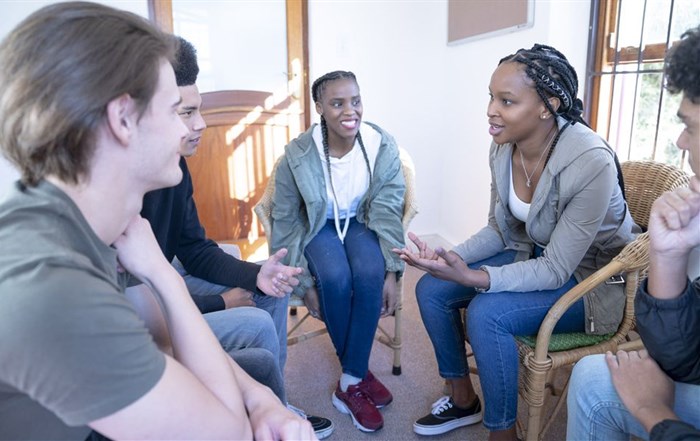There's lots of talk about the impact of the global pandemic on mental health; but so far, little action. There is still no integrated Covid-19 plan to address mental health, along with prevalent and linked issues such as gender-based violence and food insecurity. While lockdown levels have eased considerably, we're far from over grappling with Covid-19. Economic consequences are still unfolding, and worsening. Fear, stress, anxiety, depression, trauma and grief will continue to dominate in our emotional landscape for the foreseeable future.
Dr Gordon Isaacs, who holds a PhD in Social Work and has had an esteemed 50-year career which has included opening the first Crisis Clinic in Africa, pioneering mental health work in the field of HIV and AIDS and playing a founding role in initiatives such as the Triangle Project, NAPWA and SWEAT, says, “The current mental healthcare landscape is sadly bankrupt, both in terms of service delivery and fiscally. This year, Covid-19 has superseded most psycho-social and mental healthcare needs; as if you can separate mental health from physical health. With only 5% of Treasury monies allocated to the health budget going to mental healthcare, and the dire economic strains we are experiencing; we urgently need mental healthcare in the time of Covid to become a national priority.”
Dr Isaacs will join doctoral candidate at Nelson Mandela University, Thelma Oppelt, on the expert panel of the SACAP (the South African College of Applied Psychology) webinar, A global crisis and the impact on South African communities, on Thursday, 1 October, from 18h00 to 19h00.
The severe shortfalls in mental healthcare in South Africa are far from new. We’ve battled with high rates of mental illness, lack of funding, outdated treatment models and a sparse workforce for many decades. We’ve normalised the outcomes of this in our tacit acceptance of being a society with abnormally high rates of crime, gender-based violence, domestic abuse, child abuse and substance abuse. The Covid crisis gives us a unique opportunity to say "No more!" and implement new and different solutions that can improve well-being across diverse communities.
Through its Masters of Social Work in Community Mental Health Promotion, SACAP is leading the way in educating SA social innovators to address community mental health challenges in more effective ways. They use the theoretical framework of Community Based Participatory Action Research (CBPAR) to build the competencies of strategic leaders who are adept at consulting with communities to identify issues and implement unique initiatives. Oppelt says, “The pandemic has forced us into unchartered waters, but it also presents opportunities to address some of the existing inequalities and make the silenced voices in our society heard. CBPAR aims to do the same. SACAP’s MSocSci equips students to fully participate in a new paradigm where community buy-in sets the stage. Communities are well aware of their vulnerabilities and marginalisation. It’s the work of today’s community mental health worker not to prescribe and intervene but to listen, and then innovate and act in accordance with the community’s stated goals.”
As is the nature of world crises, the global pandemic will usher in long-lasting changes in societies around the world. We have the power to shape these changes through our focus and our inspiration for a better life for all.
Register today for SACAP’s webinar, A global crisis and the impact on South African communities, on Thursday, 1 October, from 18h00 to 19h00.


































